Constipation
How to submit an article:
- Registered users can submit any published journal article that has a unique DOI (Digital Object Identifier) name or link to Research Hub.
- For example, you can paste the full DOI link:
https://doi.org/10.1109/5.771073or just the DOI name:10.1109/5.771073into the field above and click submit. - The person who is first to submit a valid article to Research Hub will forever be credited for it, and every article submission earns you +6 Research Points.
Also known as: Functional Constipation
Related Topics
Published research studies are articles that present the findings of original research that has undergone a peer-review process and has been made publicly available in scholarly journals, books or other media.
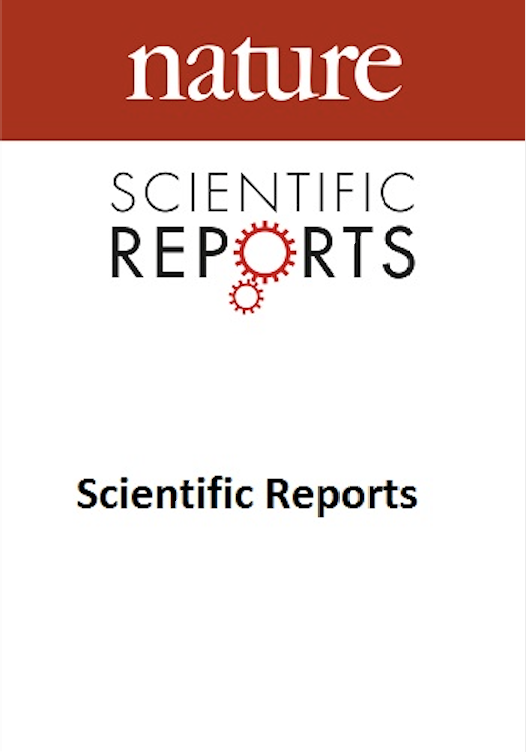
Comparison of Ziziphus jujube Mill. Syrup versus polyethylene glycol in children with functional constipation: a randomized clinical trial
2025 Jan 11 Scientific Reports Keihanian F, Maleknejad S, Saeidinia A, Soltanipour S, Pirooz A
Clinical Study Randomised Controlled Trial Children's Health Constipation JujubeJujube syrup presented improved results in treating pediatric functional constipation compared to polyethylene glycol, demonstrating a potentially effective and safe alternative treatment.
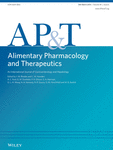
Systematic review and meta‐analysis: Foods, drinks and diets and their effect on chronic constipation in adults
2023 Oct 31 Alimentary Pharmacology & Therapeutics Van Der Schoot A, Katsirma Z, Whelan K, Dimidi E
Review Article Fruits Kiwifruit Rye Bread ConstipationFruits, especially kiwifruits, and rye bread can enhance bowel movements and help manage chronic constipation better than conventional dietary methods.
Efficacy of a Kiwifruit Extract (PhenActivTM) on Gastrointestinal Tract Function: A Randomised Double-Blind Placebo-Controlled Study
2023 Jan Food and Nutrition Sciences Briskey D, Mallard AR, Rao A
Supplementation with 3.0 g/day of PhenActivTM for 6 weeks did not significantly affect defecation frequency or stool composition but improved perceived symptoms of GIT function, including symptoms of functional GIT disorders, IBS, and constipation.
Randomised Controlled Trial Kiwifruit Digestive Health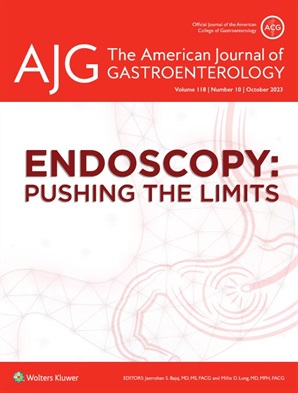
Consumption of 2 Green Kiwifruits Daily Improves Constipation and Abdominal Comfort—Results of an International Multicenter Randomized Controlled Trial
2022 Dec 20 American Journal of Gastroenterology Gearry R, Fukudo S, Barbara G, Kuhn-Sherlock B, Ansell J, Blatchford P, et al.
Randomised Controlled Trial Constipation Kiwifruit Irritable Bowel SyndromeConsuming green kiwifruits is associated with a clinically relevant increase of ≥ 1.5 complete spontaneous bowel movements per week in those experiencing constipation.

Effect of fruit intake on functional constipation: A systematic review and meta-analysis of randomized and crossover studies
2022 Oct 06 Frontiers in Nutrition Huo J, Wu L, Lv J, Cao H, Gao Q
Systematic Review Meta-Analysis Constipation KiwifruitMeta-analysis indicates that fruit consumption, particularly kiwifruits, effectively alleviates constipation symptoms, offering valuable insights into improving gut health.
Research insights are moderated by the Research Hub team and offer an at-a-glance overview of interesting research findings.

2025 Scientific Reports
Jujube syrup presented improved results in treating pediatric functional constipation compared to polyethylene glycol, demonstrating a potentially effective and safe alternative treatment.
Clinical Study Children's Health Jujube
Comparison of Ziziphus jujube Mill. Syrup versus polyethylene glycol in children with functional constipation: a randomized clinical trial
Keihanian F, Maleknejad S, Saeidinia A, Soltanipour S, Pirooz A

2023 Alimentary Pharmacology & Therapeutics
Fruits, especially kiwifruits, and rye bread can enhance bowel movements and help manage chronic constipation better than conventional dietary methods.
Review Article Fruits Kiwifruit Rye Bread
Systematic review and meta‐analysis: Foods, drinks and diets and their effect on chronic constipation in adults
Van Der Schoot A, Katsirma Z, Whelan K, Dimidi E

2022 American Journal of Gastroenterology
Consuming green kiwifruits is associated with a clinically relevant increase of ≥ 1.5 complete spontaneous bowel movements per week in those experiencing constipation.
Randomised Controlled Trial Irritable Bowel Syndrome Kiwifruit
Consumption of 2 Green Kiwifruits Daily Improves Constipation and Abdominal Comfort—Results of an International Multicenter Randomized Controlled Trial
Gearry R, Fukudo S, Barbara G, Kuhn-Sherlock B, Ansell J, Blatchford P, et al.

2022 Nutrients
Two gold kiwifruit daily are as effective as fiber-matched psyllium in treating constipation in adults and should be considered as a treatment option.
Randomised Controlled Trial Kiwifruit
Two Gold Kiwifruit Daily for Effective Treatment of Constipation in Adults—A Randomized Clinical Trial
Bayer SB, Heenan P, Frampton C, Wall CL, Drummond LN, Roy NC, et al.
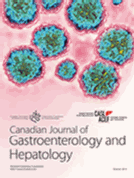
2022 Canadian Journal of Gastroenterology and Hepatology
Kiwifruit and kiwifruit extracts may have a positive impact on constipation in adults by increasing weekly bowel movements, reducing abdominal pain, and minimizing straining.
Systematic Review Kiwifruit
Kiwifruit and Kiwifruit Extracts for Treatment of Constipation: A Systematic Review and Meta-Analysis
Eltorki M, Leong R, Ratcliffe EM
Review Articles
Review articles summarise and critically evaluate the current state of research on a specific topic or field by synthesising multiple primary research studies.

Systematic review and meta‐analysis: Foods, drinks and diets and their effect on chronic constipation in adults
2023 Oct 31 Alimentary Pharmacology & Therapeutics Van Der Schoot A, Katsirma Z, Whelan K, Dimidi E
Review Article Fruits Kiwifruit Rye Bread ConstipationFruits, especially kiwifruits, and rye bread can enhance bowel movements and help manage chronic constipation better than conventional dietary methods.

Effect of fruit intake on functional constipation: A systematic review and meta-analysis of randomized and crossover studies
2022 Oct 06 Frontiers in Nutrition Huo J, Wu L, Lv J, Cao H, Gao Q
Systematic Review Meta-Analysis Constipation KiwifruitMeta-analysis indicates that fruit consumption, particularly kiwifruits, effectively alleviates constipation symptoms, offering valuable insights into improving gut health.

Kiwifruit and Kiwifruit Extracts for Treatment of Constipation: A Systematic Review and Meta-Analysis
2022 Oct 06 Canadian Journal of Gastroenterology and Hepatology Eltorki M, Leong R, Ratcliffe EM
Systematic Review Meta-Analysis Constipation KiwifruitKiwifruit and kiwifruit extracts may have a positive impact on constipation in adults by increasing weekly bowel movements, reducing abdominal pain, and minimizing straining.

Research progress in the treatment of slow transit constipation by traditional Chinese medicine
2022 May 23 Journal of Ethnopharmacology Wang LF, Wu F, Hong YL, Shen L, Zhao LJ, Lin X
TCM, especially compound prescriptions, has bright prospects in treating slow transit constipation (STC) attributed to its various holistic effects.
Review Article Constipation Chinese Herbal Medicine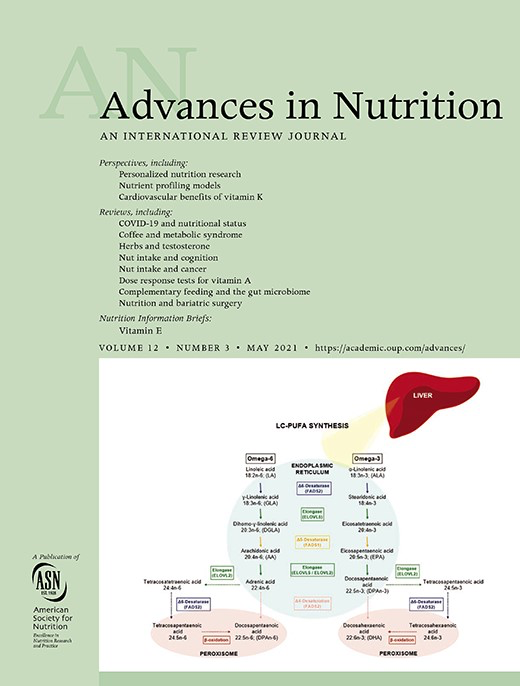
Habitual Green Kiwifruit Consumption Is Associated with a Reduction in Upper Gastrointestinal Symptoms: A Systematic Scoping Review
2022 May Advances in Nutrition Bayer SB, Frampton CM, Gearry RB, Barbara G
Review Article Irritable Bowel Syndrome KiwifruitConsuming kiwifruit, particularly the green variety, can effectively alleviate upper gastrointestinal symptoms like abdominal discomfort, pain, and indigestion.
Clinical Trials
Clinical trials are research studies that involve people and are conducted to evaluate the safety and efficacy of new treatments or interventions, such as drugs, medical devices, or behavioural therapies.

Comparison of Ziziphus jujube Mill. Syrup versus polyethylene glycol in children with functional constipation: a randomized clinical trial
2025 Jan 11 Scientific Reports Keihanian F, Maleknejad S, Saeidinia A, Soltanipour S, Pirooz A
Clinical Study Randomised Controlled Trial Children's Health Constipation JujubeJujube syrup presented improved results in treating pediatric functional constipation compared to polyethylene glycol, demonstrating a potentially effective and safe alternative treatment.
Efficacy of a Kiwifruit Extract (PhenActivTM) on Gastrointestinal Tract Function: A Randomised Double-Blind Placebo-Controlled Study
2023 Jan Food and Nutrition Sciences Briskey D, Mallard AR, Rao A
Supplementation with 3.0 g/day of PhenActivTM for 6 weeks did not significantly affect defecation frequency or stool composition but improved perceived symptoms of GIT function, including symptoms of functional GIT disorders, IBS, and constipation.
Randomised Controlled Trial Kiwifruit Digestive Health
Consumption of 2 Green Kiwifruits Daily Improves Constipation and Abdominal Comfort—Results of an International Multicenter Randomized Controlled Trial
2022 Dec 20 American Journal of Gastroenterology Gearry R, Fukudo S, Barbara G, Kuhn-Sherlock B, Ansell J, Blatchford P, et al.
Randomised Controlled Trial Constipation Kiwifruit Irritable Bowel SyndromeConsuming green kiwifruits is associated with a clinically relevant increase of ≥ 1.5 complete spontaneous bowel movements per week in those experiencing constipation.

Two Gold Kiwifruit Daily for Effective Treatment of Constipation in Adults—A Randomized Clinical Trial
2022 Oct 06 Nutrients Bayer SB, Heenan P, Frampton C, Wall CL, Drummond LN, Roy NC, et al.
Randomised Controlled Trial Constipation KiwifruitTwo gold kiwifruit daily are as effective as fiber-matched psyllium in treating constipation in adults and should be considered as a treatment option.
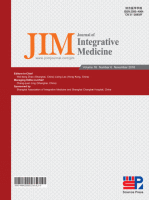
Efficacy of the herbal formula of Foeniculum vulgare and Rosa damascena on elderly patients with functional constipation: A double-blind randomized controlled trial
2022 May Journal of Integrative Medicine Azimi M, Niayesh H, Raeiszadeh M, Khodabandeh-shahraki S
Although both interventions significantly improved the treatment outcomes, constipation severity, stool consistency and the quality of life were improved more effectively by the herbal formula than by PEG 4000; however, the mechanism of action is not yet understood.
Randomised Controlled Trial Constipation Damask Rose Xiao Hui XiangStudy Protocols
Published study protocols are detailed plans that outline the objectives, methodology, statistical analyses, and organisation of a research study that have been made publicly available for others to review and use as a reference.

Tuina for functional constipation
2019 Mar Medicine Wang C, Zhang X, Wang D, Shi B, Sun G, Zhang B, et al.
This review will provide evidence of whether Tuina is an effective and safe intervention for functional constipation (FC).
Study Protocol Constipation
Banxia Xiexin tang for gastro-oesophageal reflux disease
2018 Apr Medicine Kang, Bohyung; Lee, Haesol; Choi, Youkyung; Jeon, Chanyong; Lee, Ju Ah
Banxia Xiexin tang (BXT) was mainly used to treat illnesses of the digestive system, such as reflux oesophagitis, acute and chronic gastritis, peptic ulcer, dyspepsia, and constipation.
Study Protocol Stomach UlcerPresentation Slides

Clinical Study
Jujube syrup presented improved results in treating pediatric functional constipation compared to polyethylene glycol, demonstrating a potentially effective and safe alternative treatment.
Keihanian F, Maleknejad S, Saeidinia A, Soltanipour S, Pirooz A

Review Article
Fruits, especially kiwifruits, and rye bread can enhance bowel movements and help manage chronic constipation better than conventional dietary methods.
Van Der Schoot A, Katsirma Z, Whelan K, Dimidi E

Randomised Controlled Trial
Consuming green kiwifruits is associated with a clinically relevant increase of ≥ 1.5 complete spontaneous bowel movements per week in those experiencing constipation.
Gearry R, Fukudo S, Barbara G, Kuhn-Sherlock B, Ansell J, Blatchford P, Eady S, Wallace A, Butts C, Cremon C, Barbaro MR, Pagano I, Okawa Y, Muratubaki T, Okamoto T, Fuda M, Endo Y, Kano M, Kanazawa M, Nakaya N, Nakaya K, Drummond L

Randomised Controlled Trial
Two gold kiwifruit daily are as effective as fiber-matched psyllium in treating constipation in adults and should be considered as a treatment option.
Bayer SB, Heenan P, Frampton C, Wall CL, Drummond LN, Roy NC, Gearry RB

Systematic Review
Kiwifruit and kiwifruit extracts may have a positive impact on constipation in adults by increasing weekly bowel movements, reducing abdominal pain, and minimizing straining.
Eltorki M, Leong R, Ratcliffe EM

Systematic Review
Meta-analysis indicates that fruit consumption, particularly kiwifruits, effectively alleviates constipation symptoms, offering valuable insights into improving gut health.
Huo J, Wu L, Lv J, Cao H, Gao Q

Review Article
Consuming kiwifruit, particularly the green variety, can effectively alleviate upper gastrointestinal symptoms like abdominal discomfort, pain, and indigestion.
Bayer SB, Frampton CM, Gearry RB, Barbara G

Systematic Review
Xiao Yao San can improve symptoms and reduce recurrence rates in patients with disorders of gut-brain interaction.
Liu Q, Shi Z, Zhang T, Jiang T, Luo X, Su X, Yang Y and Wei W

Review Article
Coconut water possesses unique compound profiles that imbue it with a broad spectrum of medical properties, incorporating aspects of nutrition, pharmacology, and disease prevention.
Rethinam P, Krishnakumar V
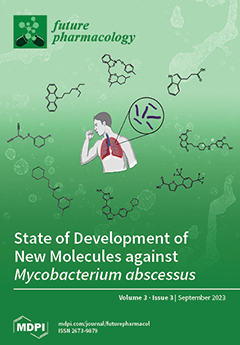
Systematic Review
Eating kiwifruits improves bowel movements and decreases stool consistency, also providing anti-inflammatory and antioxidant benefits to the gut barrier.
Antonelli M, Donelli D

Systematic Review
Traditional Chinese medicine infant massage can reduce the symptoms of constipation in children suffering from functional constipation.
Zhi Liu, Li Gang, Ma Yunwei, Ling Lin
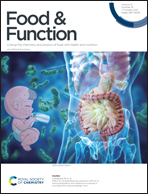
Review Article
Eating fruits such as blueberry, prunes, kiwi, and raisins positively influences gut bacteria leading to improved bowel movements and constipation relief.
Katsirma Z, Dimidi E, Rodriguez-Mateos A, Whelan K

Meta-Analysis
Acupuncture at ST25 appears to be more effective than lactulose in the treatment of functional constipation.
Li P, Luo Y, Wang Q, Shu S, Chen K, Yu D, Fan C.
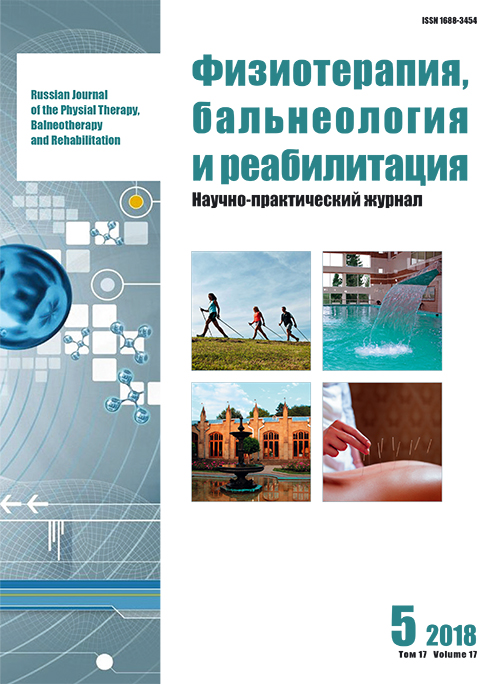
Clinical Study
Magnesium-rich mineral water effectively treats and prevents constipation in children, leading to regular, painless bowel movements.
Kulikov AG, Zakharova IN, Tvorogova TM, Stepurina LL, Elezova LI

Review Article
Magnesium sulfate-rich natural mineral waters are effective and safe as a natural treatment for functional constipation.
Dupont C, Hébert G

Systematic Review
Current evidence suggests that acupuncture is an efficient and safe treatment for functional constipation.
Wang, Lu; Xu, Mingmin; Zheng, Qianhua; Zhang, Wei; Li, Ying.

Randomised Controlled Trial
Eating whole SunGold kiwifruits, both with and without skin, can significantly decrease gut inflammation and alleviate constipation for both healthy people and those with irritable bowel syndrome.
Eady SL, Wallace AJ, Hedderley DI, Bentley-Hewitt KL, Butts CA
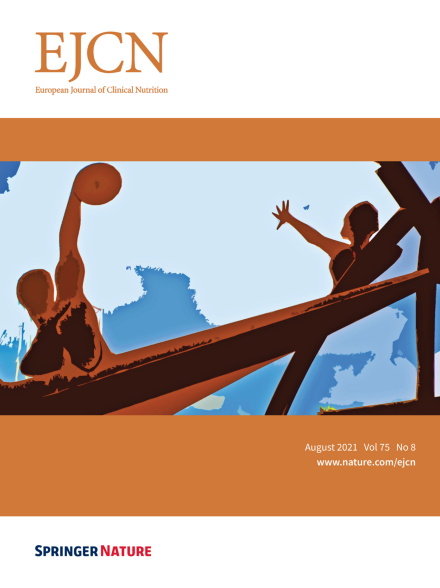
Clinical Study
Extra virgin olive oil (EVOO) intake can reduce inflammatory markers and improve gastrointestinal symptoms in patients with Ulcerative Colitis.
Morvaridi M, Jafarirad S, Seyedian SS, Alavinejad P, Cheraghian B
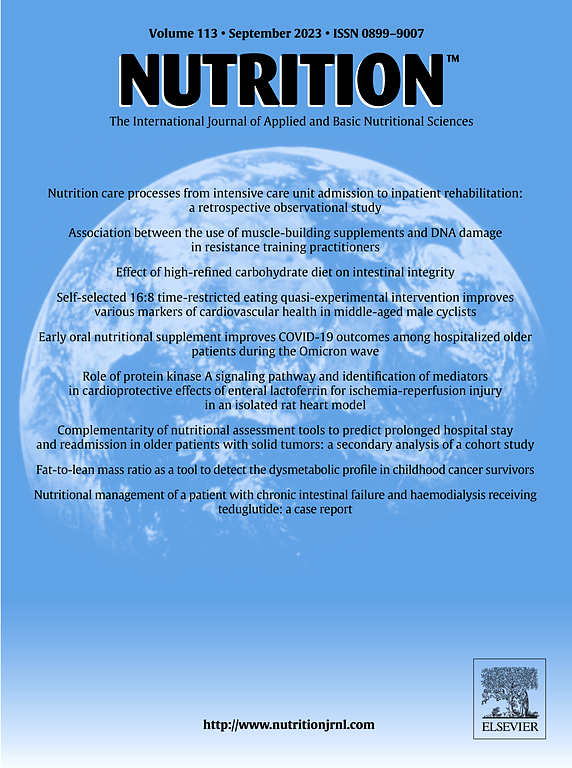
Clinical Study
Hépar mineral water, rich in sulphates and magnesium, effectively treats functional constipation, showing significant results within 7 days.
Dupont C, Constant F, Imbert A, Hébert G, Zourabichvili O, Kapel N

Randomised Controlled Trial
Kiwifruit increases water retention in the small bowel and ascending colon and increases total colonic volume. It could be used as a dietary alternative to laxatives in mild constipation.
Wilkinson‐Smith V, Dellschaft N, Ansell J, Hoad C, Marciani L, Gowland P, Spiller R
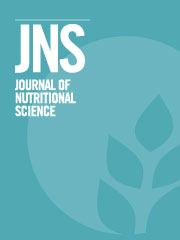
Randomised Controlled Trial
Daily consumption of three gold-fleshed kiwifruit is associated with a significant increase of two complete spontaneous bowel movements per week and reduction in gastrointestinal discomfort in mildly constipated adults.
Eady SL, Wallace AJ, Butts CA, Hedderley D, Drummond L, Ansell J, Gearry RB

Meta-Analysis
The herbal formula Modified Bu Zhong Yi Qi Tang significantly improves functional constipation symptoms with fewer adverse events.
Gong H, Qin F, He H

Systematic Review
Chinese herbal medicines showed greater improvement in terms of clinical efficacy in the treatment of irritable bowel syndrome with constipation than cisapride and mosapride.
Dan-yan Li , Yun-kai Dai , Yun-zhan Zhang, Meng-xin Huang, Ru-liu Li, Jia Ou-yang, Wei-jing Chen, Ling Hu

Review Article
Kiwifruits can relieve constipation and irritable bowel syndrome, potentially through protease-activated signaling, modulation of microflora, changes in colonic methane, bile flux, or mediation of inflammatory processes.
Bayer SB, Gearry RB, Drummond LN

Randomised Controlled Trial
Gold kiwifruit supplementation increases the abundance of the beneficial gut bacterium Faecalibacterium, which could potentially enhance gut microbiota composition and reduce inflammation.
Blatchford P, Stoklosinski H, Eady S, Wallace A, Butts C, Gearry R, Gibson G, Ansell J
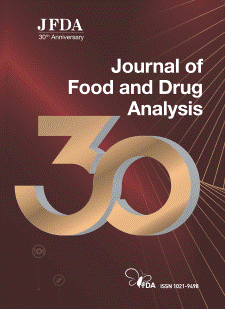
Experimental Study
Strictinin, the major phenolic compound in Pu'er teas, shows potential as a natural antibiotic and laxative but has greater inhibitory concentrations than some commercial antibiotics.
Hsieh SK, Xu JR, Lin NH, Li YC, Chen GH, Kuo PC, Chen WY, Tzen JTC
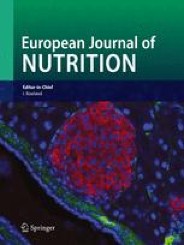
Randomised Controlled Trial
Drinking natural mineral water rich in magnesium sulphate and sodium sulphate daily improves bowel movement frequency and stool consistency in people with functional constipation.
Bothe G, Coh A, Auinger A
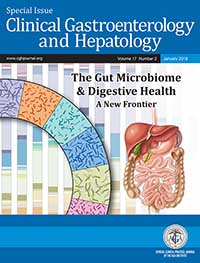
Randomised Controlled Trial
Drinking 1 liter of Hépar, a magnesium sulfate-rich mineral water, daily reduces constipation and hard or lumpy stools more effectively than low-mineral water in women.
Dupont C, Campagne A, Constant F
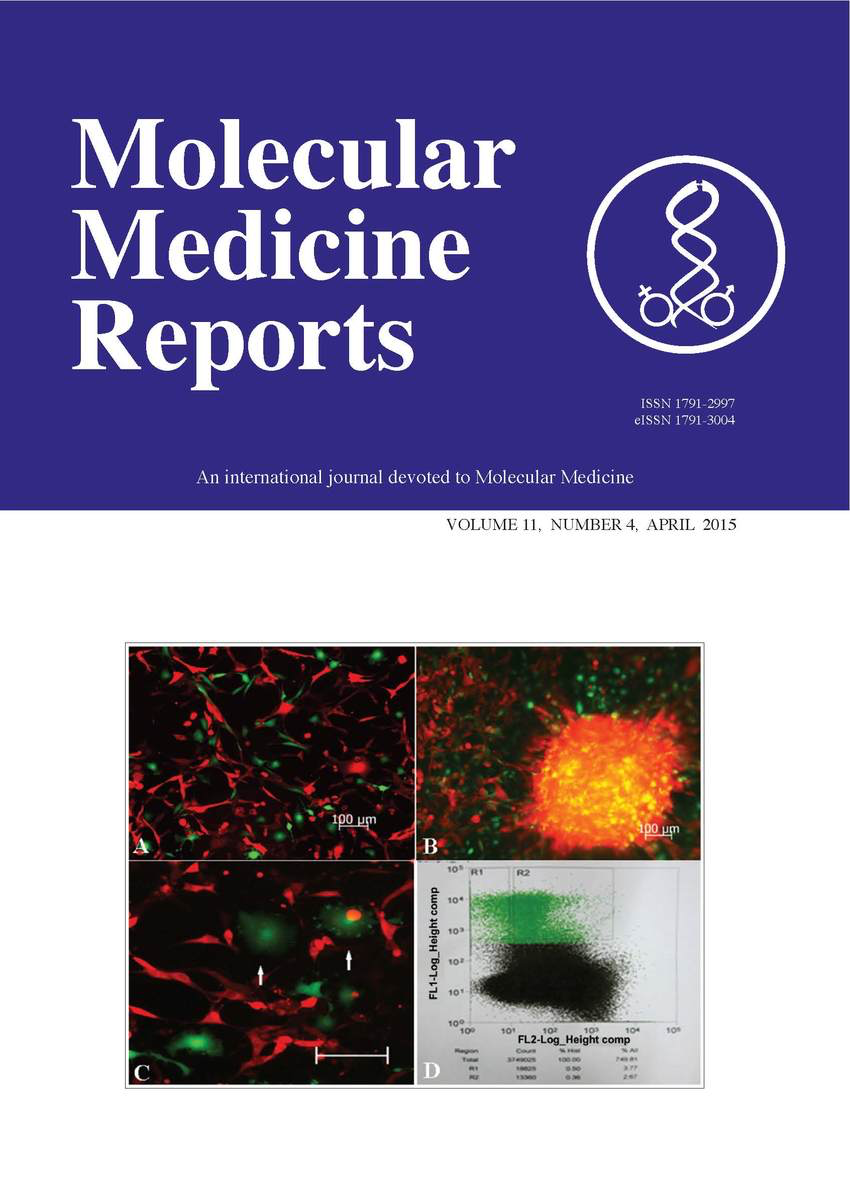
Experimental Study
Consumption of Pu-erh tea can effectively alleviate symptoms of constipation, with effects comparable to the medicinal drug bisacodyl.
LI GUIJIE, WANG QIANG, QIAN YU, ZHOU YALIN, WANG RUI, ZHAO XIN

Systematic Review
Radish seed has been demonstrated to have beneficial effects on hypertension, obesity, diabetes mellitus, constipation, and cough.
Tung-Ting Sham, Ailsa Chui-Ying Yuen, Yam-Fung NgChi-On ChanDaniel Kam-Wah Mok, and Shun-Wan Chan
Executive Summary
Write an executive summary in the form of a blog article on the topic of "Research into Chinese medicine treatment for Constipation" summarising the research below and using language that can be easily understood by patients and avoiding medical jargon using a professional and caring tone of voice.
Write an executive summary in the form of a blog article on the topic of "Researched Chinese medicine treatments for Constipation" summarising the research below in an objective and easy to understand way, and using language that can be easily understood by patients. Group the article into Chinese medicine treatments first, followed by nutrition and other treatments. Avoid using medical jargon and use a professional and caring tone of voice.
Write me a concise but easy to understand executive summary on the topic of "Chinese medicine treatments for Constipation" based on the following research that I will give you. Your summary should be 2 paragraphs long in Australian English spelling and include references to the studies.
A Clinical Study published in 2025 in the journal Scientific Reports found that Jujube syrup presented improved results in treating pediatric functional constipation compared to polyethylene glycol, demonstrating a potentially effective and safe alternative treatment. The researchers conducted a double-blind, randomized clinical trial involving children aged 2-10 years old diagnosed with functional constipation. These children were selected from patients referred to the gastroenterology clinic of 17-Shahrivar Hospital in Rasht, Iran. The eligible candidates were divided into two groups, each receiving either polyethylene glycol (PEG) or Ziziphus jujuba syrup (ZS) in a dosing range of 1-5 cc/kg/day. The patients were monitored over a three-month period, with bi-weekly check-ups in the first month, followed by monthly check-ups for the next two months. Additionally, liver and kidney function tests, as well as blood sugar levels, were verified at the start and end of the study. Out of 90 qualified children, 32 patients in the PEG group and 30 in the ZS group finished the follow-ups. The therapeutic response score in the group administered ZS showed a distinct improvement compared to those given PEG. Similarly, the average number of encopresis and pain scores, as measured by a visual analog scale, showed a significant reduction in the ZS group compared to the PEG group. Other indices, such as frequency of defecation and medication adherence, also showed a noticeable improvement in the ZS group. With only a few self-limiting side effects reported in the PEG group, it was determined that ZS provides a potential choice for functional constipation treatment without any adverse events or liver and kidney injury.
A Review Article published in 2023 in the journal Alimentary Pharmacology & Therapeutics found that Fruits, especially kiwifruits, and rye bread can enhance bowel movements and help manage chronic constipation better than conventional dietary methods. An exhaustive analysis was conducted incorporating a multitude of studies, including randomized controlled trials and uncontrolled trials, identified through electronic databases till 12th July 2023. The effect of various foods, drinks, and diets on characteristics such as stool output, gut transit time, symptoms, quality of life, adverse events, and compliance in adults with chronic constipation was inspected. The study also examined the response to different treatments and included a variety of foods such as kiwifruit, high-mineral water, prunes, rye bread, mango, fig, cereal, oat bran, yoghurt, water supplementation, prune juice, and high-fibre or no-fibre diets. The synthesized data revealed that the consumption of fruits, particularly kiwifruits, and rye bread led to a higher stool frequency when compared to standard treatments like psyllium or white bread. High-mineral water also proved more effective regarding response to treatment than low-mineral water. On the other hand, no distinctive difference was identified for prunes when set against psyllium as a treatment option. Overall, the study insightfully suggests dietary modifications as a means to manage chronic constipation, emphasizing the potential of fruits such as kiwifruits and rye bread.
A Randomised Controlled Trial published in 2022 in the journal American Journal of Gastroenterology found that Consuming green kiwifruits is associated with a clinically relevant increase of ≥ 1.5 complete spontaneous bowel movements per week in those experiencing constipation. Participants included healthy controls (n = 63), patients with functional constipation (FC, n = 60), and patients with constipation-predominant irritable bowel syndrome (IBS-C, n = 61) randomly assigned to consume 2 green kiwifruits or psyllium (7.5 g) per day for 4 weeks, followed by a 4-week washout, and then the other treatment for 4 weeks. The primary outcome was the number of complete spontaneous bowel movements (CSBM) per week. Secondary outcomes included GI comfort which was measured using the GI symptom rating scale, a validated instrument. Data (intent-to-treat) were analyzed as difference from baseline using repeated measures analysis of variance suitable for AB/BA crossover design. Consumption of green kiwifruit was associated with a clinically relevant increase of ≥ 1.5 CSBM per week (FC; 1.53, P < 0.0001, IBS-C; 1.73, P = 0.0003) and significantly improved measures of GI comfort (GI symptom rating scale total score) in constipated participants (FC, P < 0.0001; IBS-C, P < 0.0001). No significant adverse events were observed.
A Randomised Controlled Trial published in 2022 in the journal Nutrients found that Two gold kiwifruit daily are as effective as fiber-matched psyllium in treating constipation in adults and should be considered as a treatment option. This study provided evidence that habitual consumption of two gold kiwifruit daily, a realistic standard serving of fruit, is at least as effective as fiber-matched psyllium in lieu of placebo in treating constipation in adults, with fewer side effects, and offers greater ease of defecation through the improvement of stool consistency and reduction of straining.
A Systematic Review published in 2022 in the journal Canadian Journal of Gastroenterology and Hepatology found that Kiwifruit and kiwifruit extracts may have a positive impact on constipation in adults by increasing weekly bowel movements, reducing abdominal pain, and minimizing straining. Kiwifruit and kiwifruit extracts show promise in increasing weekly bowel movements and reducing abdominal pain and straining in adults with constipation, although the overall evidence is of low certainty. However, kiwifruit may lead to minor adverse effects, such as bloating and flatulence, compared to placebo, indicating potential for its use as a dietary supplement in constipation management, especially in conjunction with other laxatives if necessary, but further research is needed to establish its effectiveness.
A Systematic Review published in 2022 in the journal Frontiers in Nutrition found that Meta-analysis indicates that fruit consumption, particularly kiwifruits, effectively alleviates constipation symptoms, offering valuable insights into improving gut health. A meta-analysis of 11 randomized controlled trials (RCTs) examined the effects of fruit consumption on patients with functional constipation. The analysis revealed that fruit consumption, particularly kiwifruits, significantly increased stool frequency, improved stool consistency, and positively impacted microbiota composition, suggesting a potential dietary approach for managing constipation symptoms.
A Review Article published in 2022 in the journal Advances in Nutrition found that Consuming kiwifruit, particularly the green variety, can effectively alleviate upper gastrointestinal symptoms like abdominal discomfort, pain, and indigestion. The research undertook a systematic scoping review of three electronic databases from 1947 until January 2021. The team searched for clinical trials that investigated the effects of either green or gold kiwifruit or their compounds on upper gastrointestinal symptoms. They focused on the studies that had the symptom relief as secondary outcomes in healthy participants or those with functional constipation or irritable bowel syndrome with constipation. The outcomes were analyzed based on the type of measurement tools used; one being the Gastrointestinal Symptom Rating Scale (GSRS) and the others being non-GSRS methods. The analysis unveiled that out of the identified 12 clinical trials, with a total of 661 participants, only five used the GSRS to assess symptom relief. Green kiwifruit showed notable results in reducing abdominal discomfort and pain. Kiwifruit consumption, in general, appeared to diminish indigestion. While the number of studies reporting on symptom relief using a comparable measurement was limited, the evidence for kiwifruit's positive efficacy on gastrointestinal symptom relief remained consistent.
A Systematic Review published in 2022 in the journal Frontiers in Pharmacology found that Xiao Yao San can improve symptoms and reduce recurrence rates in patients with disorders of gut-brain interaction. The paper's methodology involved a meta-analysis of randomized controlled trials found in seven databases, up until November 22, 2021. The trials, which totaled 48 all together, were included to determine the efficacy of Xiao-Yao-San in treating disorders of gut-brain interaction (previously known as functional gastrointestinal disorders). A range of measures, including therapeutic efficacy, symptom score, Self-Rating Anxiety Scale score, Self-Rating Depression Scale score, and the recurrence rate, were analysed using both random-effects and fixed-effects models, as well as trial sequential analysis. In terms of results, Xiao-Yao-San showed a marked improvement in the effective rate of managing disorders of gut-brain interaction compared to western drugs, both when used alone and in combination with western medicine. The paper also found the treatment notably reduced symptom scores, anxiety scores, and depression scores for patients with the disorder. Further, instances of recurrence were also reduced. Overall, Xiao-Yao-San was well tolerated and no serious adverse events were reported in any of the trials included in this analysis.
A Review Article published in 2022 in the journal Reference Series in Phytochemistry found that Coconut water possesses unique compound profiles that imbue it with a broad spectrum of medical properties, incorporating aspects of nutrition, pharmacology, and disease prevention. The study utilized comprehensive analysis to assess the chemical profile of coconut water, identifying a range of components including phytohormones, enzymes, antioxidant compounds, vitamins, minerals, and phenolic compounds. These components are known to contribute to the water's biological activity and pharmacological effects, thereby enabling a raft of medicinal properties inherent to coconut water. The water was found to feature anti-microbial, anti-bacterial, anti-inflammatory, anti-hypertensive, rejuvenating, hepatoprotective, hypolipidemic, and diuretic properties. An examination of the therapeutic effects of coconut water revealed a significant impact on gastric dysfunction, dysentery, and child malnutrition alongside notable capabilities to manage hypertension. The water was found to promote exercise performance, reduce swelling, dissolve kidney stones, improve kidney function, improve digestion, relieve constipation, reduce the risk of heart disease, lower high blood pressure, and improve cholesterol levels. Consumption of tender coconut water was specifically found to reduce the risk of heart disease, help prevent Alzheimer’s disease pathologies and prevent osteoporosis in experimental animals. The unique nutritional profile of coconut water was also found to provide it with the capacity to balance body chemistry and fight cancer.
A Systematic Review published in 2021 in the journal Future Pharmacology found that Eating kiwifruits improves bowel movements and decreases stool consistency, also providing anti-inflammatory and antioxidant benefits to the gut barrier. The review included nine clinical studies investigating the effect of kiwifruit consumption on intestinal function and constipation. The studies, focusing on young or middle-aged adults predominantly, required participants to consume between two to four kiwifruits daily for durations varying from three days to four weeks. The impact on elderly individuals was less explored. The review indicates that kiwifruits can enhance bowel movements and reduce stool consistency in both healthy individuals and those suffering from irritable bowel syndrome-induced constipation. The fiber and water content of kiwifruits is thought to contribute to these results. Furthermore, consumption of kiwifruit showed extra intestinal health advantages, including anti-inflammatory and antioxidant effects on the gut barrier. However, when focusing on patients with constipation, the fruit's consumption correlated with a temporary increase in defecation frequency but inconsistently impacted stool consistency. High-quality methodical studies and meta-analysis substantiated these findings.
A Systematic Review published in 2021 in the journal Frontiers in Public Health found that Traditional Chinese medicine infant massage can reduce the symptoms of constipation in children suffering from functional constipation. A review of 23 studies involving 2,005 patients found that traditional Chinese medicine (TCM) infant massage was more effective than drug therapy alone for treating infant functional constipation. The massage showed significant improvements in overall effectiveness, frequency of bowel movements, and constipation symptoms. However, there was no significant difference between the massage and drug therapy when it came to stool form and difficulty of defecation. The variations in results may be due to factors like patient conditions, different massage techniques, the effectiveness of drugs used in the control group, and variations in criteria for measuring effectiveness. The study did not detect any publication bias.
A Review Article published in 2021 in the journal Food & Function found that Eating fruits such as blueberry, prunes, kiwi, and raisins positively influences gut bacteria leading to improved bowel movements and constipation relief. The research was conducted via a comprehensive review of animal and human studies investigating the impact of various fruits on gut motility and intestinal microbiota. Techniques used to gather data included electronic database searches, hand searches, and expert consultation. Fruits evaluated in the review included blueberries, prunes, kiwi fruit, and raisins, with an emphasis placed on their fiber, sorbitol, and (poly)phenol content. Each fruit's influence was studied in relation to its potential to modify gut microbiota and its consequences on gut motility and constipation. In the subsequent analysis, Blueberry powder was found to influence certain gut bacteria like lactobacilli and bifidobacteria, prunes contributed to the growth of bifidobacteria, kiwi fruit impacted Bacteroides, and raisins had an effect on Ruminococcus. Apart from these, other fruits like apples (through apple fiber isolate), oranges (orange extract), and fig (fig paste) were also cited for their crucial effects on gut transit time and overall digestive health. The mechanism behind these effects, the specific components playing a role, as well as the potential synergistic effects of multiple components were also explored, albeit limitedly.
A Meta-Analysis published in 2020 in the journal Evidence-Based Complementary and Alternative Medicine found that Acupuncture at ST25 appears to be more effective than lactulose in the treatment of functional constipation. The meta-analysis demonstrates that acupuncture at ST25 appears to be more effective than lactulose in the treatment of functional constipation. This was found to be especially true for deep needling with high-frequency dilatational wave, which had a greater impact on improving CCS, FSD, CTT, and CCS6m. Additionally, acupuncture at ST25 was shown to be safer than conventional treatment, with the rate of AE being significantly lower for both deep needling and shallow needling.
A Clinical Study published in 2020 in the journal Russian Journal of Physiotherapy, Balneology and Rehabilitation found that Magnesium-rich mineral water effectively treats and prevents constipation in children, leading to regular, painless bowel movements. This randomized, prospective, open, comparative study involved 95 children and adolescents aged 10-16 years with functional constipation. They received sanatorium therapy for 18 days, including a sparing-exercise regimen, therapeutic nutrition, health-improving massage, and physiotherapy exercises. Participants were divided into two groups: Group 1 (55 patients) received basic treatment plus magnesium-containing mineral water, while Group 2 (40 patients) received only basic treatment. The study assessed the frequency and nature of defecation, vegetative status, and functional body reserves. By day 5, 49% of Group 1 patients achieved daily defecation, increasing to 89.1% by the end of treatment. In contrast, only 55% of Group 2 showed positive changes by the end. The mineral water group also had softer, pain-free bowel movements, with most achieving a morning defecation reflex after consuming the water. The control group saw less significant changes in defecation nature, with only 18% reaching softer bowel movements by the end of treatment. The results indicate the effectiveness and safety of magnesium-containing mineral water in treating and preventing functional constipation in children.
A Review Article published in 2020 in the journal Nutrients found that Magnesium sulfate-rich natural mineral waters are effective and safe as a natural treatment for functional constipation. This paper reviews clinical data on the efficacy of magnesium sulfate-rich natural mineral waters in treating functional constipation (FC), a chronic type of constipation with no identifiable physiological, anatomical, or iatrogenic causes. The condition is known to significantly affect patients’ quality of life and increase healthcare costs. The study examines the historical use of magnesium sulfate in treating FC and its longstanding recognition for laxative properties, especially in the context of magnesium sulfate-rich mineral waters. The review highlights that, despite the long history of using magnesium sulfate-rich mineral waters for their laxative effects, clinical studies specifically demonstrating their effectiveness in FC were scarce before the 21st century. The collected data indicate that these mineral waters are not only effective in treating FC but also safe, positioning them as a viable natural treatment option for this condition.
A Systematic Review published in 2020 in the journal Evidence-Based Complementary and Alternative Medicine found that Current evidence suggests that acupuncture is an efficient and safe treatment for functional constipation. This systematic review suggests that acupuncture for FC is safe and effective, especially in terms of increased stool frequency and improved constipation symptoms, stool formation, and quality of life, but the relationship between acupuncture and drugs is not clear. In the future, high-quality RCTs are still needed to provide evidence to support these conclusions and examine the alternative or complementary relationship between acupuncture and existing drugs for the treatment of FC.
A Randomised Controlled Trial published in 2020 in the journal Nutrients found that Eating whole SunGold kiwifruits, both with and without skin, can significantly decrease gut inflammation and alleviate constipation for both healthy people and those with irritable bowel syndrome. In the 16-week cross-over study, 38 participants (both healthy and those with Irritable Bowel Syndrome-Constipation) were randomly assigned to consume either three whole SunGold kiwifruits without the skin or three whole kiwifruits with the skin for periods of four weeks, with a length of four weeks between each intervention as a washout period. Following the intervention, it was observed that there was a significant reduction in pro-inflammatory cytokines (specifically TNF-α) for both the healthy participants and those with Irritable Bowel Syndrome-Constipation when whole kiwifruits, including the skin, were consumed. Furthermore, similar results were witnessed for the healthy individuals upon consumption of whole kiwifruits without their skin. The consumption of kiwifruit – including its skin – also increased bowel frequency and led to significant reductions in the gastrointestinal symptom rating scale for constipation and Irritable Bowel Syndrome-related pain scores for both participant groups. Results indicate that the skin of the SunGold kiwifruit may have beneficial effects on gastrointestinal health that are not derived from merely consuming the fruit's flesh.
A Clinical Study published in 2020 in the journal European Journal of Clinical Nutrition found that Extra virgin olive oil (EVOO) intake can reduce inflammatory markers and improve gastrointestinal symptoms in patients with Ulcerative Colitis. In the methodology of this study, forty patients suffering from Ulcerative Colitis participated in a crossover clinical trial, where the effects of extra virgin olive oil were compared with canola oil as part of their diet. Blood samples were collected before and after a 20-day intervention period, and measures such as disease activity and gastrointestinal symptoms were evaluated using established rating scales. In terms of results, the consumption of EVOO showed a significant decrease in recognized inflammatory markers. Furthermore, symptoms such as bloating, constipation, urgent bowel movements, and incomplete bowel evacuation were reported to have been significantly reduced following the consumption of EVOO. Therefore, this study suggests that extra virgin olive oil can offer significant benefits as a complementary medicine in the treatment of Ulcerative Colitis.
A Clinical Study published in 2019 in the journal Nutrition found that Hépar mineral water, rich in sulphates and magnesium, effectively treats functional constipation, showing significant results within 7 days. In this multicenter, randomized, double-blind, controlled study, 226 outpatients with functional constipation were evaluated. Participants underwent a washout period before consuming 1.5 liters of water daily for 14 days, of which 1 liter was either Hépar or low-mineral water. Patients self-reported stool consistency daily, and an expert investigator, blinded to the treatment groups, evaluated stool consistency using the Bristol stool scale based on patient-provided photographs. The study successfully met its primary endpoint, with 50% of participants in the Hépar group responding to treatment by day 14, compared to 29% in the control group. The average time to observe a treatment response was 6.4 days for Hépar users, shorter than the 7.3 days in the control group. Approximately 60% of patients provided stool scores, with 79% of these scores closely aligning between patients and experts. The safety analysis of Hépar indicated excellent results, confirming its efficacy and safety in treating functional constipation.
A Randomised Controlled Trial published in 2019 in the journal Alimentary Pharmacology & Therapeutics found that Kiwifruit increases water retention in the small bowel and ascending colon and increases total colonic volume. It could be used as a dietary alternative to laxatives in mild constipation. This study aimed to use MRI techniques to identify the mechanism of action behind the therapeutic benefit seen from kiwifruit in previous studies. We hypothesised that some of the physicochemical properties of kiwifruit would increase intestinal water, and we have found this to be the case. Colonic water content, reflected by T1 relaxation time, showed some increase in the ascending colon. This is likely due to water trapping by the fruit fibre in the small intestine. The timing of the increase in colonic water content in the second half of the study day is in accordance with when the meal contents would be predicted to reach the caecum. In the descending colon measuring T1 relaxation time was challenging, as the descending colon was sometimes empty. There was no difference in T1 found here and the values were generally lower than those in the ascending colon. This is as previously reported15 and in keeping with the function of the colon in progressively dehydrating colonic contents as they move distally.
A Randomised Controlled Trial published in 2019 in the journal Journal of Nutritional Science found that Daily consumption of three gold-fleshed kiwifruit is associated with a significant increase of two complete spontaneous bowel movements per week and reduction in gastrointestinal discomfort in mildly constipated adults. This randomised, controlled study demonstrated that consumption of three A. chinensis var. chinensis ‘Zesy002’ (Zespri® SunGold kiwifruit) daily in mildly constipated individuals resulted in a significant increase in two CSBM per week when compared with baseline and the dietary fibre supplement Metamucil®. It also reduced gastrointestinal discomfort by improving symptoms of indigestion, constipation and abdominal pain when compared with baseline and significantly improved indigestion when compared with Metamucil®. ‘Zesy002’ were also well tolerated, efficacious and safe. This is the first study assessing the impact of ‘Zesy002’ on stool frequency and gastrointestinal discomfort, and the results suggest that SunGold kiwifruit has some potential as a possible alternative therapy for constipation. Further studies in this area are required to replicate these findings in other populations and to ascertain a deeper understanding of the mechanisms of action that may be driving these results. These will help to confirm and grow the evidence for ‘Zesy002’ kiwifruit as a whole food which can be incorporated into the daily diet as a treatment for improving symptoms in mildly constipated individuals.
A Meta-Analysis published in 2018 in the journal Evidence-Based Complementary and Alternative Medicine found that The herbal formula Modified Bu Zhong Yi Qi Tang significantly improves functional constipation symptoms with fewer adverse events. Method: Extensive research was conducted on the formula Modified Buzhong-Yiqi-Tang (MBYT) used for adult patients suffering from functional constipation. Twenty-five randomized controlled clinical trials were selected and undertaken in accordance with predefined criteria. A total of 2089 patients' symptoms and responses to treatment were evaluated and compared against the effects of stimulant laxatives, osmotic laxatives, and prokinetic agents. The study also evaluated MBYT's efficacy as an adjuvant therapy. Discussion of Results: The research found that MBYT treatment made significant improvements to patients' constipation symptoms when compared to other treatments. As an adjuvant therapy, it showed superior results in comparison to osmotic laxatives alone, prokinetic agents alone, and biofeedback alone. The review indicates a lesser number of adverse events for patients using MBYT compared to those in control groups. Despite the limited quality and scope of the trials, MBYT showed a remarkable therapeutic effect on adult patients with functional constipation.
A Systematic Review published in 2017 in the journal PLOS One found that Chinese herbal medicines showed greater improvement in terms of clinical efficacy in the treatment of irritable bowel syndrome with constipation than cisapride and mosapride. Eleven eligible studies comprising a total of 906 participants were identified. In the primary outcome, TCM showed significant improvement in overall clinical efficacy compared with cisapride and mosapride. In terms of secondary outcomes, TCM significantly alleviated abdominal pain, defecation frequency, and stool form in the treatment group as compared to the control group. A lower recurrence rate was associated with TCM as compared to cisapride and mosapride. No adverse effects were observed during TCM treatment. TCM showed greater improvement in terms of clinical efficacy in the treatment of IBS-C than cisapride and mosapride, although it was not possible to draw a definitive conclusion due to the small sample size, high risk, and low quality of the studies. Large multi-center and long-term high-quality randomized control trials are needed.
A Review Article published in 2017 in the journal Critical Reviews in Food Science and Nutrition found that Kiwifruits can relieve constipation and irritable bowel syndrome, potentially through protease-activated signaling, modulation of microflora, changes in colonic methane, bile flux, or mediation of inflammatory processes. The review outlines the physiological processes underlying constipation and irritable bowel syndrome, and discusses the nutritional composition of kiwifruits. It delves into recent advances made in the study of kiwifruits and their impact on abdominal comfort, with the focus being given to the effect of kiwifruit fibers on gastrointestinal health. The study also identified and examined certain gaps in the existing research, using indications from studies on other foods known to affect the gastrointestinal tract to derive possible mechanisms of kiwifruits' beneficial actions. In discussing the results, the review observed that while the effect of kiwifruit fibers on gastrointestinal health is well established, the supposed increase in gastrointestinal motility caused by kiwifruits is yet to be fully characterized. Numerous potential mechanisms were invoked that could be contributing to the physiological effects observed - these included the induction of motility through protease-activated signaling, the modulation of microflora in the gut, alterations in colonic methane status or bile flux, and the mediation of inflammation within the gut.
A Randomised Controlled Trial published in 2017 in the journal Journal of Nutritional Science found that Gold kiwifruit supplementation increases the abundance of the beneficial gut bacterium Faecalibacterium, which could potentially enhance gut microbiota composition and reduce inflammation. This research was conducted on two groups of participants: one healthy and the other suffering from Functional Constipation (FC). The groups, one containing 20 individuals (one of whom did not complete the study) and the other 9, were given ACTAZIN™ green (in doses of 2400mg and 600mg) and Livaux™ (2400 mg) gold kiwifruit supplements, as well as a placebo in the form of isomalt. The study design was a randomized cross-over structure carried out over 4 weeks, with 2 weeks washout periods between each stage. Changes in faecal microbiota composition and metabolism were assessed using 16S RNA gene sequencing and Gas Chromatography (GC), and colonic pH was measured via SmartPill wireless motility capsules. The baseline measurements showed that the composition of the faecal microbiota differed significantly between the two groups, with certain bacterial taxa such as Bacteroidales markedly more abundant in the healthy group, while others, including Ruminococcaceae, were more prevalent in the FC group. The clearest change affected by the nutrient supplementation was an increase in Faecalibacterium abundance in the FC group following Livaux™ supplementation, a result observed in nearly all participants in this group. As lower proportions of Faecalibacterium are often linked with gastrointestinal disorders, this increase suggests that the supplements could offer a strategy for ameliorating these conditions.
A Experimental Study published in 2016 in the journal Journal of Food and Drug Analysis found that Strictinin, the major phenolic compound in Pu'er teas, shows potential as a natural antibiotic and laxative but has greater inhibitory concentrations than some commercial antibiotics. The study isolated strictinin from the young leaves and buds of wild Pu'er tea trees to evaluate its antibacterial and laxative properties. Its minimum inhibitory concentrations against two types of bacteria (Propionibacterium acnes and Staphylococcus epidermidis) were measured and compared to typical antibiotics. The study also tested the effects of combining strictinin with commercial antibiotics. Moreover, rat feeding tests were conducted to observe laxative effects. The results showed that strictinin does have antibacterial properties albeit requiring higher concentrations compared to some conventional antibiotics. Its use in tandem with other antibiotics demonstrated additive and synergistic effects in inhibiting bacterial activity. Additionally, a laxative effect was confirmed in rats, which was likely caused by increased small intestine transit but not diarrhea or increased food intake. This suggests strictinin could be one potential ingredient in Pu'er tea responsible for antiviral, antibacterial, and laxative effects.
A Randomised Controlled Trial published in 2015 in the journal European Journal of Nutrition found that Drinking natural mineral water rich in magnesium sulphate and sodium sulphate daily improves bowel movement frequency and stool consistency in people with functional constipation. This placebo-controlled, double-blind, randomized trial involved 106 healthy individuals with functional constipation. They were randomly assigned to consume either 300 or 500 ml of a natural mineral water rich in magnesium sulphate and sodium sulphate (Donat Mg) or a placebo water daily for six weeks. The 300-ml groups were discontinued following an interim analysis. Participants recorded their bowel movements, stool consistency, gastrointestinal symptoms, and general well-being in a diary. The primary outcome was the change in the number of complete spontaneous bowel movements per week. In the 500-ml group, consisting of 75 subjects, there was a tendency for a higher increase in complete spontaneous bowel movements per week in the active group compared to the placebo after six weeks. The mean number of spontaneous bowel movements significantly increased over the study period, with notable differences between the study arms throughout the study. Stool consistency and subjectively perceived symptoms of constipation improved significantly with the mineral water compared to placebo. Overall, the daily consumption of this specific mineral water led to improvements in bowel movement frequency and stool consistency, enhancing the health-related quality of life for participants with functional constipation.
A Randomised Controlled Trial published in 2014 in the journal Clinical Gastroenterology and Hepatology found that Drinking 1 liter of Hépar, a magnesium sulfate-rich mineral water, daily reduces constipation and hard or lumpy stools more effectively than low-mineral water in women. This randomized, double-blind, placebo-controlled trial studied the effects of Hépar, a magnesium sulfate-rich natural mineral water, on 244 adult women with functional constipation, as defined by the Rome III criteria. The participants, identified by 62 general practitioners across France, were divided into three groups. After a washout period, they either drank 1.5 liters of natural low-mineral water daily (control group), 0.5 liters of Hépar plus 1 liter of low-mineral water daily (Hépar 0.5 group), or 1 liter of Hépar plus 0.5 liters of low-mineral water daily (Hépar 1 group) for four weeks. Data on stool number and type, abdominal pain, use of rescue medications, adverse events, and water consumption were collected. No significant effect was observed in the first week. However, by the second week, constipation reduction was observed in 21.1% of the control group, 30.9% in the Hépar 0.5 group, and 37.5% in the Hépar 1 group. The Hépar 1 group also experienced fewer hard or lumpy stools and less need for rescue medication. The effectiveness correlated with the magnesium sulfate concentration in the water. Safety was excellent, with no serious adverse events reported among the Hépar consumers. The study concluded that daily consumption of 1 liter of Hépar significantly reduced constipation and the occurrence of hard or lumpy stools in women with functional constipation, starting from the second week of treatment.
A Experimental Study published in 2014 in the journal Molecular Medicine Reports found that Consumption of Pu-erh tea can effectively alleviate symptoms of constipation, with effects comparable to the medicinal drug bisacodyl. The methodology in the research focused on observing the effects of Pu-erh tea on induced constipation in mice. The study induced constipation through activated carbon and then assessed various factors, such as changes in body weight, dietary intake, gastrointestinal transit times, and physical characteristics of feces. The impact of Pu-erh tea was compared to that of bisacodyl, a well-known laxative. Specific dosage levels of Pu-erh tea were utilized while continuously observing the physiological responses and changes in mice. The results showed a marked improvement in all major parameters related to constipation in mice treated with Pu-erh tea. It was found that body weight, dietary intake and water consumption were better in the tea-treated groups than in the carbon-induced constipation group. The gastrointestinal transit times were also considerably improved, with Pu-erh tea equivalent in efficiency to bisacodyl. In addition to this symptomatic relief, the serum levels of substances associated with gastrointestinal motility and function were significantly affected, indicating that Pu-erh tea has potential anti-constipation effects at a physiological level.
A Systematic Review published in 2013 in the journal Evidence-Based Complementary and Alternative Medicine found that Radish seed has been demonstrated to have beneficial effects on hypertension, obesity, diabetes mellitus, constipation, and cough. The dried ripe seed of Raphanus sativus L., commonly known as radish seed (or Raphani Semen), is used as traditional Chinese medicine (TCM) to treat constipation, chronic tracheitis, and hypertension. The major active compounds in Raphani Semen are alkaloids, glucosinolates, brassinosteroids, and flavonoids. Fatty acids are its main nutritional contents. Raphani Semen has been demonstrated to have beneficial effects on hypertension, obesity, diabetes mellitus, constipation, and cough. So far, there is no report about the adverse/toxic effects of this herb on humans. However, Raphani Semen processed by roasting was reported to exhibit some adverse effects on mice. Additionally, erucic acid, the main fatty acid in Raphani Semen, was shown to enhance the toxicity of doxorubicin. Thus, Raphani Semen has a potential risk of causing toxicity and drug interaction. In summary, Raphani Semen is a valuable TCM herb with multiple pharmacological effects. More studies on Raphani Semen could help better understand its pharmacological mechanisms so as to provide clear scientific evidence to explain its traditional uses, to identify its therapeutic potential on other diseases, and to understand its possible harmful effects.
Moderation Tools
Topic
Sign In
Users not signed in are limited to viewing the 5 most recent items of content.